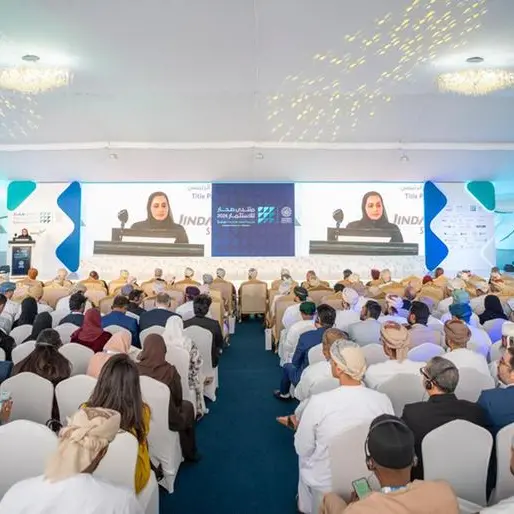Cairo, April 5th, 2016: Egypt's non-oil private sector was firmly entrenched in a downturn during March, as business conditions worsened for the sixth straight month. The latest contraction was the most marked in over two-and-a-half years, driven by sharper declines in output, new orders and employment. Notably, input stocks fell at a survey-record pace amid muted client demand. Another key area of uncertainty in March was the exchange rate. Currency weakness against the US dollar was cited as a factor restricting new work, and it also contributed to a steep rise in purchasing costs. Subsequently, charges rose to the greatest extent in nearly three years.
The survey, sponsored by Emirates NBD and produced by Markit, contains original data collected from a monthly survey of business conditions in the Egyptian private sector.
Commenting on the Emirates NBD Egypt PMITM, Jean-Paul Pigat, Senior Economist at Emirates NBD, said:
"The deterioration in business conditions is not entirely surprising as the survey took place at a time of elevated uncertainty that coincided with the devaluation of the EGP. Looking ahead, we believe that the move to a more competitive exchange rate has now reduced a key source of risk, and could therefore set the stage for a broader economic recovery in the second half of 2016."
Key Findings
- Faster contractions in output, new orders and employment
- Currency weakness weighs on demand, and leads to sharp cost inflation
- Survey-record fall in pre-production inventories
Falling from 48.1 in February to 44.5, the headline seasonally adjusted Emirates NBD Egypt Purchasing Managers' Index™ (PMI) - a composite indicator designed to give an accurate overview of operating conditions in the non-oil private sector economy - was at its lowest in 31 months during March. The latest figure stretched the current downturn to six months. It also meant that the average reading for Q1 2016 (46.9) was little-changed since Q4 2015 (46.8).
The contraction of the sector as a whole was characterised by lower output and new work in March. Activity fell at the quickest rate since August 2013, marking a six-month period of decline. New business showed a similar trend, as signalled by the respective index dropping to a two-and-a-half year low. According to anecdotal evidence, output decreased thanks to a lack of new work. Subdued demand was linked in turn to liquidity shortages stemming from currency depreciation against the dollar.
Falling new export business was also behind the reduction in total new orders during March. A number of panellists suggested that prospective international clients had been cautious due to uncertainty surrounding the Egyptian economy, particularly the exchange rate.
The rate of job shedding accelerated to the fastest in four months during March. There were reports that workers had left their posts in order to search for better job opportunities. Meanwhile, outstanding business rose at the sharpest pace in the survey's five-year history.
The downturn in Egypt's non-oil private sector was also reflected by firms' purchasing activity. Input buying fell to the greatest extent in 31 months, leading to a survey-record decline in pre-production inventories.
On the price front, March data highlighted the impact of currency devaluation relative to the US dollar. Total input costs increased sharply, in line with a marked rise in purchase prices. Charges rose as a result, with firms reporting that higher costs far outweighed discounts offered in an effort to secure new clients. Moreover, the respective rates of inflation were the sharpest since April 2013.
-Ends-
The next Egypt PMI Report will be published on May 5th 2016 at 07:30 (CAIRO) / 05:30 (UTC)
For further information, please contact:
Ibrahim Sowaidan
Head - Group Corporate Affairs
Emirates NBD
Telephone: +971 4 609 4113 / +971 50 6538937
e-mail: ibrahims@emiratesnbd.com
Tricia Kaul
ASDA'A Burson-Marsteller; Dubai, UAE
Tel: 971-4-4507600; Fax: 971-4-4358040
Email: tricia.kaul@bm.com
Jean-Paul Pigat
Senior Economist, Emirates NBD
Tel: 971-4-2307807
Email: JeanP@emiratesnbd.com
Joanna Vickers
Corporate Communications
Markit
Tel: +44-207-260-2234
Email: joanna.vickers@markit.com
Philip Leake
Economist
Markit
Tel: +44-1491-461014
Email: philip.leake@markit.com
The Emirates NBD Egypt Purchasing Managers' Index is based on data compiled from monthly replies to questionnaires sent to purchasing executives in approximately 450 private sector companies, which have been carefully selected to accurately represent the true structure of the Egyptian non-oil economy, including manufacturing, services, construction and retail. The panel is stratified by Standard Industrial Classification (SIC) group, based on industry contribution to GDP. Survey responses reflect the change, if any, in the current month compared to the previous month based on data collected mid-month. For each of the indicators the 'Report' shows the percentage reporting each response, the net difference between the number of higher/better responses and lower/worse responses, and the 'diffusion' index. This index is the sum of the positive responses plus a half of those responding 'the same'.
The Purchasing Managers' Index™ (PMI™) is a composite index based on five of the individual indexes with the following weights: New Orders - 0.3, Output - 0.25, Employment - 0.2, Suppliers' Delivery Times - 0.15, Stock of Items Purchased - 0.1, with the Delivery Times index inverted so that it moves in a comparable direction.
Diffusion indexes have the properties of leading indicators and are convenient summary measures showing the prevailing direction of change. An index reading above 50 indicates an overall increase in that variable, below 50 an overall decrease. Markit do not revise underlying survey data after first publication, but seasonal adjustment factors may be revised from time to time as appropriate which will affect the seasonally adjusted data series.
About Emirates NBD
Emirates NBD is a leading banking Group in the region. As at 31st December 2015, total assets were AED 406.6 Billion, (equivalent to approx. USD 110.7 Billion). The Group has a leading retail banking franchise in the UAE, with more than 220 branches and over 940 ATMs and CDMs in the UAE and overseas. It is a major player in the UAE corporate and retail banking arena and has strong Islamic banking, Global Markets & Treasury, Investment Banking, Private Banking, Asset Management and Brokerage operations.
The Group has operations in the UAE, Egypt, the Kingdom of Saudi Arabia, Singapore, the United Kingdom and representative offices in India, China and Indonesia.
The Group is an active participant and supporter of the UAE's main development initiatives and of the various educational, environmental, cultural, charity and community welfare establishments.
About Markit
Markit is a leading global diversified provider of financial information services. We provide products that enhance transparency, reduce risk and improve operational efficiency. Our customers include banks, hedge funds, asset managers, central banks, regulators, auditors, fund administrators and insurance companies. Founded in 2003, we employ approximately 4,000 people in 11 countries. Markit shares are listed on Nasdaq under the symbol MRKT. For more information, please see www.markit.com.
The intellectual property rights to the Emirates NBD Egypt PMI™ provided herein are owned by or licensed to Markit. Any unauthorised use, including but not limited to copying, distributing, transmitting or otherwise of any data appearing is not permitted without Markit's prior consent. Markit shall not have any liability, duty or obligation for or relating to the content or information ("data") contained herein, any errors, inaccuracies, omissions or delays in the data, or for any actions taken in reliance thereon. In no event shall Markit be liable for any special, incidental, or consequential damages, arising out of the use of the data. Purchasing Managers' Index™ and PMI™ are either registered trade marks of Markit Economics Limited or licensed to Markit Economics Limited. Emirates NBD use the above marks under licence. Markit is a registered trade mark of Markit Group Limited.
© Press Release 2016



















